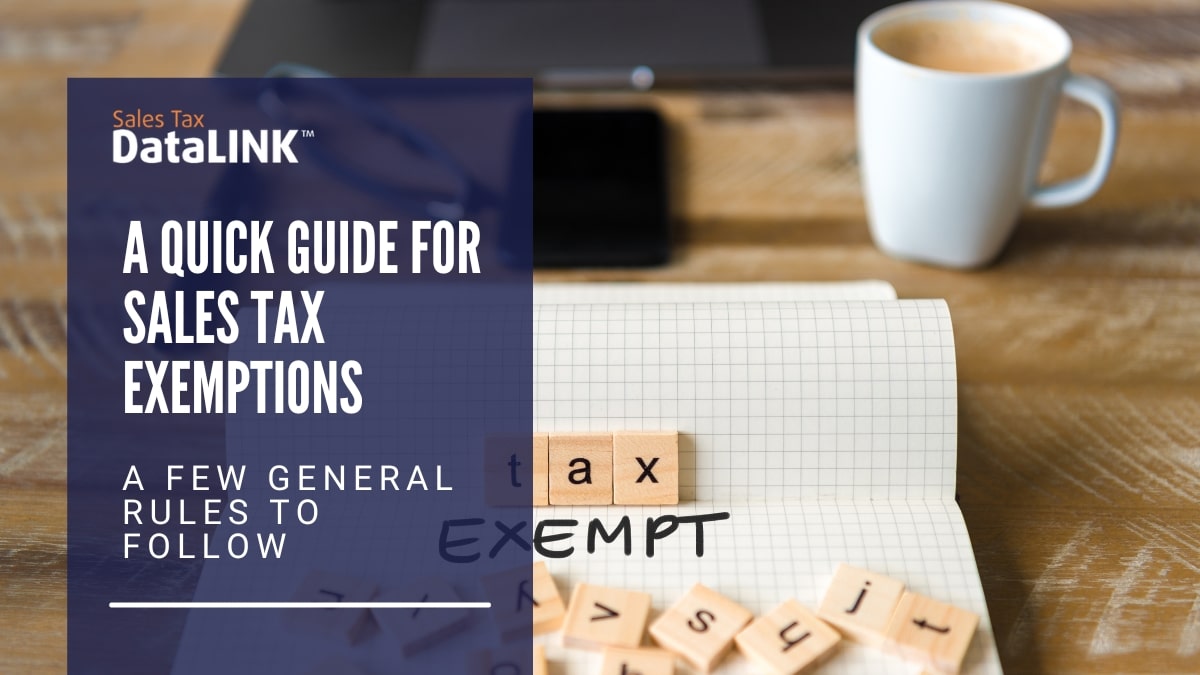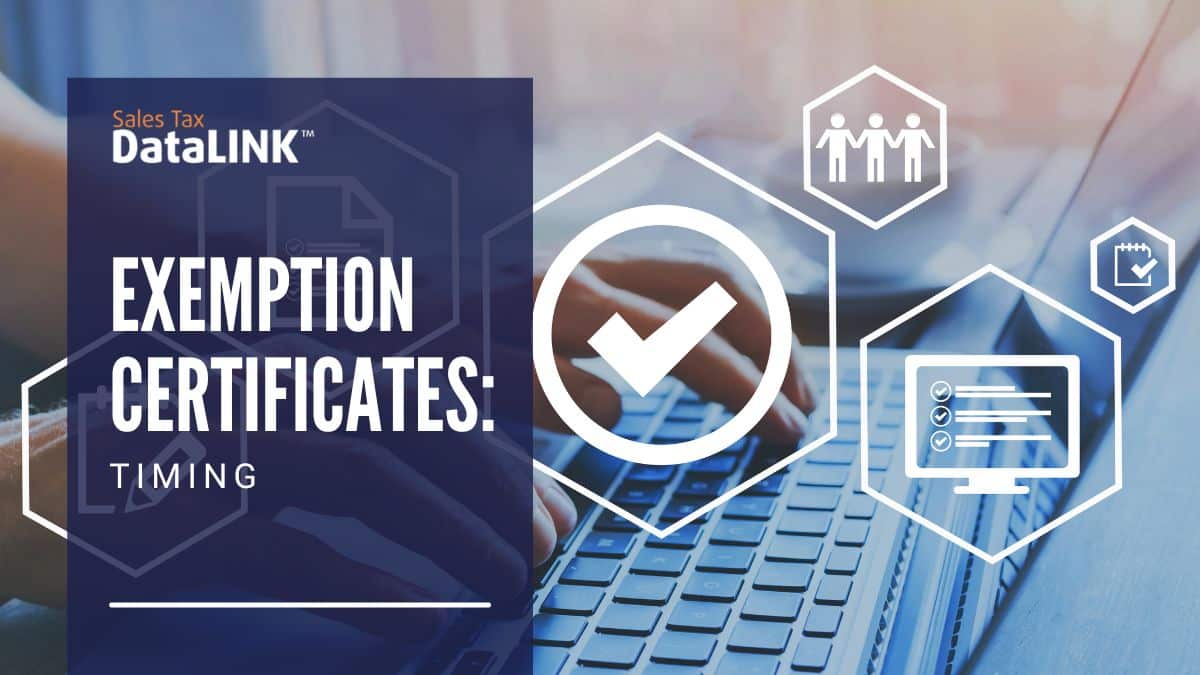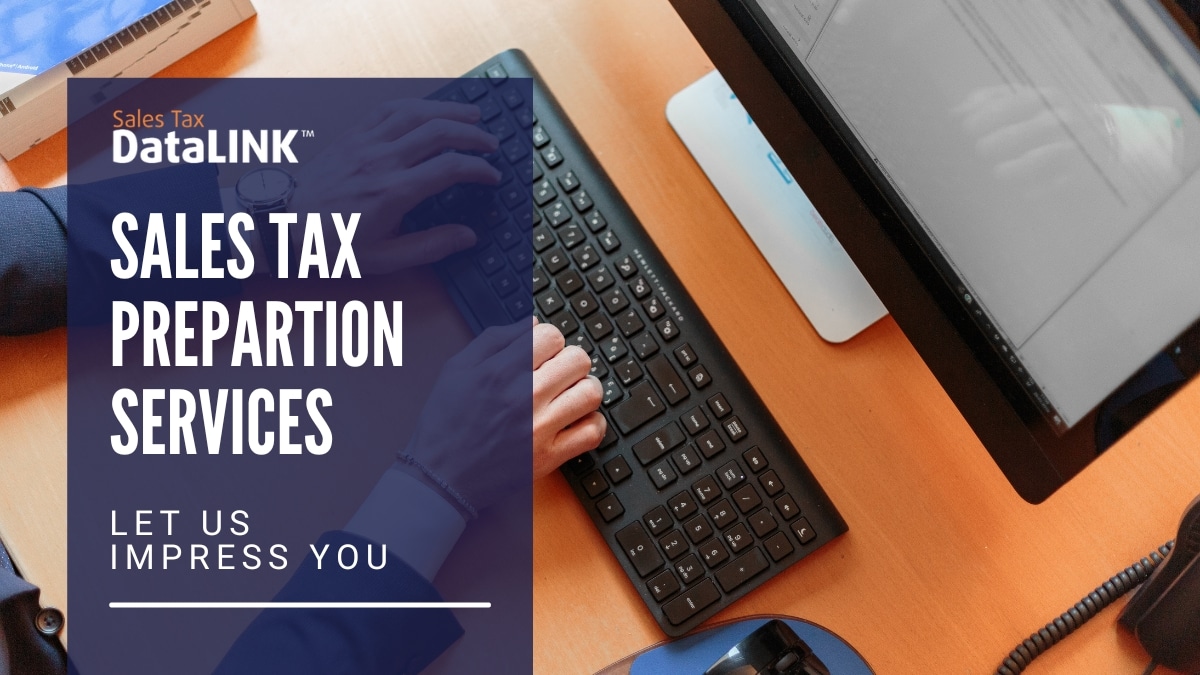A Quick Guide to Sales Tax Exemptions
In each state, there are certain types of items that are exempt from sales tax or taxed at a lower rate. Food and medicine are often non-taxable, but the specifics can be very complex. Once you’re clear on taxable items, though, you may still have other exemptions to think about. Some sales transactions are exempt from sales tax not because the item is nontaxable, but because of some characteristic of either the buyer or the seller.
The general rule is that each retail sale of tangible personal property is presumed to be taxable. Put another way, if you make retail sales, you generally must collect or pay sales tax with respect to each sale unless you can show that the sale was somehow exempt from tax.
Each state offers its unique exemptions from its sales tax, but in general, exemptions are provided on three aspects of the sale:
- The type of property being sold
- The identity of the purchaser
- The use to which the property will be put
For exemptions based on the type of property sold, every state recognizes that there are certain commodities that individuals must purchase to survive, and most don’t tax essential purchases, or tax them at a lower rate. Most states offer product-specific exemptions like food, clothing, prescription medicines, and medical (prosthetic) devices. Those states that don’t provide exemptions usually impose a lower tax rate.
Exemptions based on the type of purchaser usually apply to specific organizations. Under federal law, states cannot tax sales that are made to the federal government. Similar exemptions exist in most states for sales to the state, its cities, counties, and other local jurisdictions. Also common are exemptions to non-profit charitable, religious, and educational organizations.
Exemptions based on types of use are those that are provided to support certain industries such as agriculture, manufacturing, or industrial processes. They can also be used to encourage certain activities for the public good, such as pollution control. Similarly, most states offer exemptions for the sale of machinery and equipment used in manufacturing a product for sale.
Keep in mind, however, that for both purchaser-based and use-based exemptions the onus is on the purchaser to prove that a particular purchase is exempt from tax. Or, looking at the transaction from the other side, a seller cannot refrain from collecting or paying tax on a sale unless the seller believes in good faith that the sale is exempt. Meeting the required level of proof is generally a matter of the purchaser providing the seller with an exemption certificate that documents the exemption the purchaser is claiming, or a direct payment certificate that shows the purchaser is permitted to pay taxes directly.




